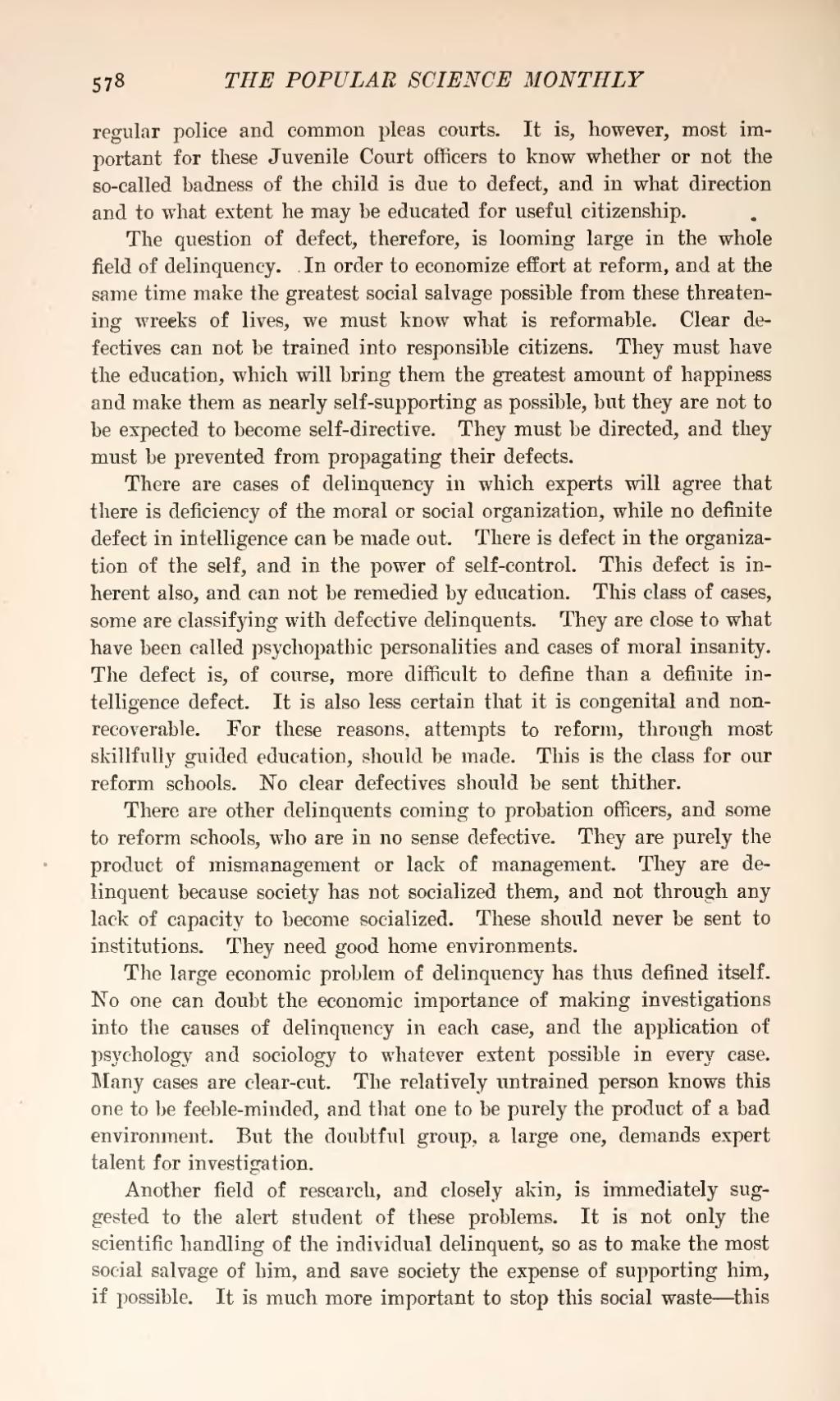regular police and common pleas courts. It is, however, most important for these Juvenile Court officers to know whether or not the so-called badness of the child is due to defect, and in what direction and to what extent he may be educated for useful citizenship.
The question of defect, therefore, is looming large in the whole field of delinquency. . In order to economize effort at reform, and at the same time make the greatest social salvage possible from these threatening wrecks of lives, we must know what is reformable. Clear defectives can not be trained into responsible citizens. They must have the education, which will bring them the greatest amount of happiness and make them as nearly self-supporting as possible, but they are not to be expected to become self-directive. They must be directed, and they must be prevented from propagating their defects.
There are cases of delinquency in which experts will agree that there is deficiency of the moral or social organization, while no definite defect in intelligence can be made out. There is defect in the organization of the self, and in the power of self-control. This defect is inherent also, and can not be remedied by education. This class of cases, some are classifying with defective delinquents. They are close to what have been called psychopathic personalities and cases of moral insanity. The defect is, of course, more difficult to define than a definite intelligence defect. It is also less certain that it is congenital and nonrecoverable. For these reasons, attempts to reform, through most skillfully guided education, should be made. This is the class for our reform schools. No clear defectives should be sent thither.
There are other delinquents coming to probation officers, and some to reform schools, who are in no sense defective. They are purely the product of mismanagement or lack of management. They are delinquent because society has not socialized them, and not through any lack of capacity to become socialized. These should never be sent to institutions. They need good home environments.
The large economic problem of delinquency has thus defined itself. No one can doubt the economic importance of making investigations into the causes of delinquency in each case, and the application of psychology and sociology to whatever extent possible in every case. Many cases are clear-cut. The relatively untrained person knows this one to be feeble-minded, and that one to be purely the product of a bad environment. But the doubtful group, a large one, demands expert talent for investigation.
Another field of research, and closely akin, is immediately suggested to the alert student of these problems. It is not only the scientific handling of the individual delinquent, so as to make the most social salvage of him, and save society the expense of supporting him, if possible. It is much more important to stop this social waste—this
